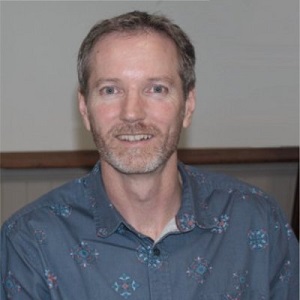David Allan – Pacific Paradise State School LCC Chairperson
David Allan’s role as the LCC Chair is a bit different from the norm. As the CEO of the Mount Tamborine Convention Centre and manager of his own executive leadership and coaching business, David’s time to serve his local chaplaincy committee is limited. However, due to his strategic big-picture thinking, he and the Pacific Paradise State School LCC team are able to make it work.
“I originally came in as a consultant and eventually was asked to stay and be a part of the team, when the former Chair vacated the role. Because of my work commitments, I don’t have a great deal of time to spend on other things, but I am happy to chair the meetings and make sure we stay a functional team,” says David.
“I tend to just chair the meetings and do the big-picture, strategic stuff like meet with local businesses, communicate with the principal and oversee any hiring, like we’re doing at the moment in finding a new chaplain.”
 As someone who coaches executives and their teams to operate more efficiently and effectively, David is a perfect fit for an LCC Chair. From his professional experience and track record, his advice can help get the best out of each team and committee throughout Queensland.
As someone who coaches executives and their teams to operate more efficiently and effectively, David is a perfect fit for an LCC Chair. From his professional experience and track record, his advice can help get the best out of each team and committee throughout Queensland.
“My advice to other LCC members would be to read the book “The Five Dysfunctions of a Team”, by Patrick Lencioni. Implement what you get from that book and keep an eye on the dynamics of your team constantly. This book is a tool to help them understand team dynamics. If I just said ‘watch the dynamics of your team’, you may not know what that means. So if I say read the book, all the information is there to be used. It’s simple and easy to read.”
Establishing clear boundaries surrounding the decision-making process is a clear way to reduce the likelihood and occurrence of conflict within the team, says David.
“A committee is designed to make decisions as a committee. Decisions should be made by the whole of the committee (or quorum) when they’re meeting in their capacity as a committee [not by individuals on an ad hoc basis]. Therefore no one should act outside the committee unless empowered to do so. The more decision-making which takes place during LCC meetings, the less conflict you have and the less politicking occurs. And the more people will feel that the process of the committee is healthy, and decisions are more robust and strategically sound. Decisions that are made will be more considered, owned by each committee member and prayerful.”
Coming from both a corporate and ministry background, David is conscious of the difficulties that chaplains face, and how these difficulties can affect their performance.
“I was a pastor for 10 years, so I understand what it’s like to be in ministry. And I understand the difference between working for hours and working for results.”
“One of the difficult parts of being a chaplain is the sheer amount of stakeholders that you need to consider. You’ve got to think about students, their parents, the teachers, the principal, local churches and you’ve got the LCC. There are so many stakeholders of which to be mindful.”
Challenges can arise for the chaplain when they try to bridge these multi-faceted gaps between the interests of each individual. David’s ability to focus on the broader strategic vision for his LCC team and for chaplaincy in his region gives him valuable insight into how LCC chairs and their committees fit into the wider mission of chaplaincy throughout Queensland.
“I think it’s really just attending to the relationships between the chaplain and the LCC. The chaplain needs to know that he or she is being fully supported. They need to know that. They need to know that they can come to me at any time that there’s an issue or a problem, and know that I’ve got their back.”
